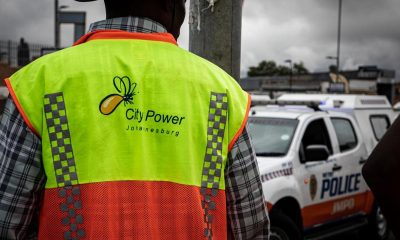News
Eskom Sets the Record Straight: No Prepaid Meter Lockouts in South Africa

Rumours spark unnecessary panic
Over the past few weeks, South Africans have been bombarded with alarming headlines claiming that prepaid electricity meters across the country were about to be “locked out.” According to these reports, Eskom was preparing to block customers from topping up unless they performed so-called “periodic updates” to their meters.
The problem? None of it was true.
Eskom has now stepped in to dismiss the claims, labelling them outright fake news. “There are no prepaid meter lockouts,” the utility confirmed, adding that misleading stories were being generated by questionable websites that use artificial intelligence to push fabricated articles.
The anatomy of a fake story
The false reports, often published under generic bylines such as “Yuvaan Barman” or “Priya Sachdeva,” claimed that households risked losing access to electricity unless they immediately complied with new update requirements. Similar names have been linked to other fake stories in South Africa, including earlier misinformation about the national rollout of the Aarto demerit system.
In both cases, the origin of the content traces back to shadowy publishers allegedly operating out of Delhi, India, under the banner of the “Delhi Marketing Agency”, an outfit that South African authorities suspect is not even real.
The truth about meter updates
While Eskom is quick to quash rumours of lockouts, there is a real backstory behind all of this. In 2024, the power utility and municipal providers had to roll out updates to nearly 11 million prepaid meters. The reason was technical but critical: most meters operate with a security feature known as a Token Identifier (TID), which expired on 24 November 2024. Without an update, customers would not have been able to recharge their meters.
That updateknown as the Key Revision Number (KRN 2), was successfully implemented. But fake news outlets appear to have twisted this legitimate update into a scare story about forced “meter lockouts.”
Fake news fatigue in South Africa
South Africa has been hit hard by waves of online misinformation, particularly around major infrastructure issues. In June this year, the Road Traffic Infringement Agency (RTIA) was forced to issue its own clarification after AI-generated websites claimed the controversial Aarto demerit system would go live in July 2025. Authorities later confirmed the real rollout will only start in December 2025, with the demerit points system kicking in from September 2026.
These recurring fake stories not only confuse the public but also damage trust in institutions already under pressure. “They are dangerous because they erode confidence and create unnecessary panic,” the Gauteng Provincial Joint Operations Committee said earlier this year.
What South Africans should do
Eskom has urged South Africans to ignore viral headlines and instead rely on official communication platforms such as Eskom’s website, MyEskom app, and its verified social media channels. The same goes for updates from government departments like Transport and RTIA.
With AI-generated fake news becoming more sophisticated and often ranking high on platforms like Google News, the responsibility now falls on both the media and the public to double-check information before sharing it.
More than just rumours
Beyond the fake headlines, the Eskom prepaid meter story highlights a bigger issue: how misinformation spreads during times of national anxiety. With load shedding, rising tariffs, and trust deficits already weighing heavily on South Africans, it’s not surprising that fake stories about losing access to electricity gain traction.
But as Eskom has made clear: your lights aren’t about to go out because of some fabricated lockout.
{Source: My Broad Band}
Follow Joburg ETC on Facebook, Twitter , TikTok and Instagram
For more News in Johannesburg, visit joburgetc.com

















